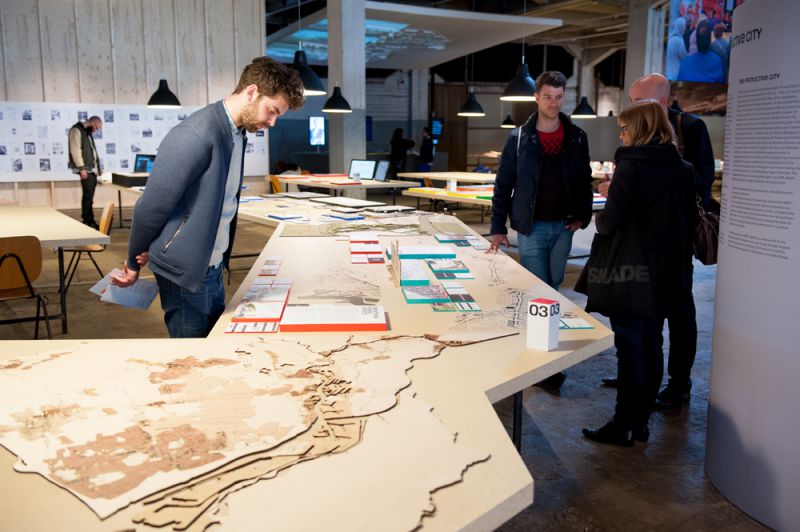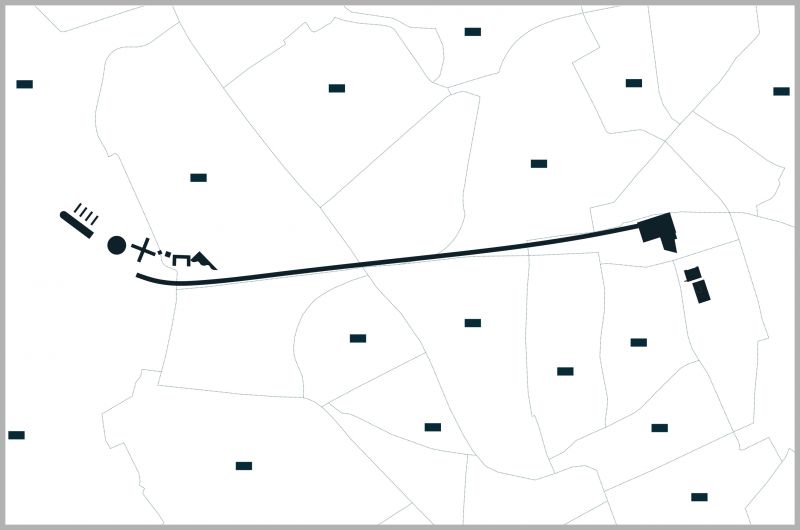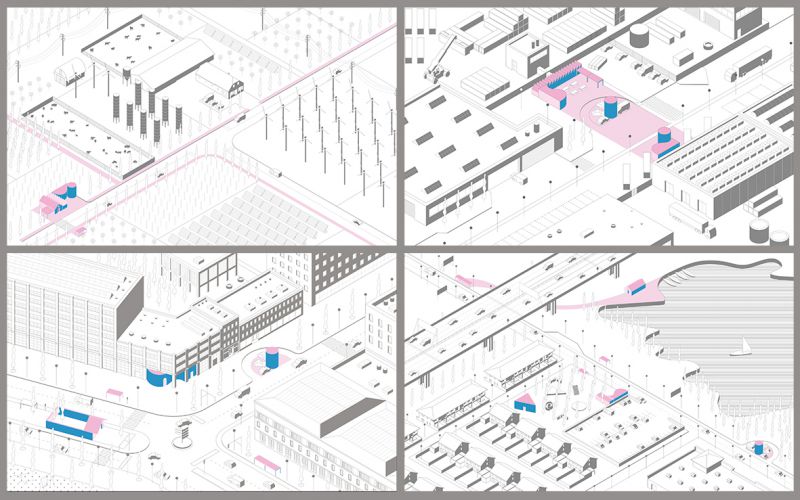
picture: Lotte Stekelenburg
The IABR–Atelier Rotterdam proposes seven development perspectives that further develope manufacturing economy and contribute to a more resilient region.
Making Public
Current economic and societal changes call for a new perspective on the metropolis, a story that integrates and connects. Rotterdam has a long history of events celebrating the productive combination of working and living in the city. Places such as a Crystal Palace of the Manufacturing Economy could be a strong, public environment where innovative entrepreneurs can share and discuss projects together, where institutions can meet citizens and young companies, where interaction and exchange can naturally be stimulated. The Schouwburgplein could act as a continuous showroom, with temporary events organized by local manufacturers. Making Public wants to create a productive mindset in the city and region, bringing the Next Economy into the public domain.

Circular Landscapes
The Next Economy is a circular economy. Local landscapes become even more valuable as renewable sources for materials, products, and energy. The concept of Circular Landscapes connects standalone landscapes, becoming a larger-scale, resilient, and circular system in which waste and energy loops are closed. The complementary landscapes in the Metropolitan Region Rotterdam The Hague offer a unique opportunity to optimize and close production and consumption loops.
High Streets Revisited
A network of roads and waterways historically connects the different manufacturing milieus in the Metropolitan Region Rotterdam The Hague. Along the main axes, the high streets, of this network, a ribbon-like settlement pattern of mixed use has developed over time. New layers of infrastructure like railroads and highways have changed the usage and importance of these high streets. Revaluing the high streets and their unique (spatial) qualities offers opportunities to link different milieus to one another and strengthen the manufacturing economy on a regional scale.
GroLiWo (Growing Living Working)
Limits between working and living are blurring and there is a growing call for milieus in which production and consumption, learning and doing, manufacturing and (re)inventing are spatially more connected. The Next Economy calls for new proximities and shorter circuits, also on the level of the neighborhood. Optimizing the opportunities the manufacturing economy yields will require interventions that will optimally facilitate and encourage the interaction between activities and actors. The GroLiWo concept (Growing Living Working) is an architectural typology that expresses these new virtuous proximities on the scale of the neighborhood, and can be used to facilitate this hybridization in the industrial areas along the Maas River.
Productive Service Stations
People and companies require more and more ‘on demand’ functions to be able to deliver the most precise and on-time products and services. These emerging habits are somehow erasing the boundary between center and periphery, since the services are demanded everywhere in the area. Productive Service Stations (PSS) could deliver a large range of services within the entire Metropolitan Region Rotterdam The Hague. The PSS are all identical, but adapt to the specific needs of each part of the area and provide services such as charging points for electric cars, shared bikes, convenient stores, and storage space for web orders, but also a shared space and specific tools for production, repairs, and maintenance. Equally spread over the area, they act as an identity marker of the Metropolitan Region Rotterdam The Hague and offer equal access for all.

L'auc
Learning City
Innovation and education are fuel for the future manufacturing economy. Innovation requires places where education, research institutes, and business come together, such as Open Innovation Campuses and Science Parks. They promote cross-fertilization between (re)inventing, making, and testing, among a large group of people in an easily accessible location. The Metropolitan Region Rotterdam The Hague provides opportunities for this, but these aren’t always fully exploited. Education requires more and more diverse sites for continuous training and research, for testing and making, at all scale levels, all the more now that the pace of innovation continues to increase. This requires the constant improvement of knowledge and skills, a life long of learning.
Repositioning Working Districts
Industrial- and business districts are often considered monofunctional, while the activities on those sites are actually quite diverse, with a mix of production, services, and logistics. Many manufacturing activities take place in these districts and in fact a lot of innovation happens in these areas. The districts are situated mainly at the edges of municipal borders, well connected to highways, but difficult to reach by public transportation or from the city centers. However, from the perspective of a regional manufacturing economy, certain districts are in fact located at very central and (potentially) strategic locations, in close proximity to larger-scale production facilities, or science and education campuses. The manufacturing economy can provide a new perspective for these twentieth-century working districts and offer incentives to make them futureproof.